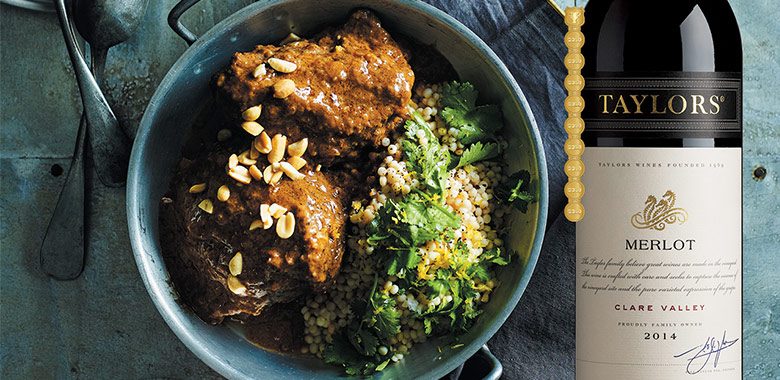
Wine
Talking with Taylors
In celebration of the Taylors Merlot 2014 being the Wine Selectors Wine of the Month for April, we caught up with Chief Winemaker Adam Eggins to talk Taylors and winemaking.
You’ve had huge success at Taylors with Merlot, what makes it such an appealing red variety and what’s the secret to getting it right?
Merlot is challenging. The French say Merlot is very fickle, very demanding. The site must be perfect, the soil, the drainage, the amount of wind and sunshine. Ultimately, your belief in Merlot is what drives your winemaking approach.
Everyone tells me we have the wrong clones in this country. I think not. We may have Merlot in the wrong viticultural sites and we may be approaching the variety with the wrong mind set, however, Merlot can be one of the world’s greatest wines so the question becomes what can we do or not do to release its worldly potential.
Tannins are important, or more importantly, the carefully controlled lack of over extraction. Our Merlots are cuvee wines, predominantly free-run, which has greater levels of aromatic intensity and a natural beautiful delicacy for which the variety is renowned.
What makes working for such a historic family-owned winery so special?
Making wines for the Taylors family is very special. Wine is in their blood and every decision we make is in the best interest of their wines, as ultimately their wines are their brand. The family thinks generationally and makes decisions for a sustainable future.
Working against drought conditions, your first vintage with Taylors was a challenge? Are the challenging vintages sometimes the most rewarding?
South Australia is a beautiful winemaking climate, but we can have it all: drought, bushfire, heatwave and flood and a bit of frost and hail to boot.
The tough years can produce spectacular wines and it feels like they are more deserving, as you may have had to look harder to find them.
The great years are a pleasure too, however, and South Australia is generally blessed with how many great seasons. We can have somewhere around 6-7 out of 10 vintages rate incredibly highly.
What’s your favourite wine style to make? Is it also your favourite to drink?
To make, it’s probably Shiraz, the sheer colour and flavour spectrums available are fascinating to work with and I also love how the variety absorbs and harmonises with the right level of the right oak.
To drink, it’s much harder. Great Chardonnay has incredible appeal, as can Riesling and Pinot Noir and our finest Cabernets can’t be beat in the middle of winter. Of late, I have a growing interest in Tempranillo and taste it as often as I can, especially the lovely wines of Rioja.
What’s been your most memorable winemaking moment?
To be honest, there is no one moment, but many. What we like doing is some small scale research to raise the quality bar, then the following vintage taking it to large scale process to have a quality impact on an affordable wine.
We have been researching the early application of oak with St Andrews Shiraz for many years, which has worked well, but our greatest honour is when our ~$18 rrp Estate Shiraz won the Best Shiraz in Australia twice, against all competitors.
Why is this more special? Well, the wine is affordable and widely available, so that people all around the country can enjoy it.
This is largely Taylor’s philosophy, to make great wines in an affordable scale.
What makes the Clare Valley such a special region to make wine in?
I have asked myself that many times and I rate Clare equally with two other regions – Margaret River and the Yarra Valley.
These regions have the potential to do many things well. World Class Riesling, Chardonnay, Merlot, Shiraz and Cabernet Sauvignon and possibly in the future Tempranillo can be achieved in the Clare Valley. Not many regions have this depth of potential that the Clare Valley offers.
It is an unusual combination of the heat of the region and its altitude and the proximity to the coastline that gives us beautiful ripening weather during the day, but very cool evenings, which helps retain natural elegance and restraint.
Taylors certainly has an admirable approach to sustainability. Do you think enough Australian wineries are doing their bit for the environment?
Taylors are very disciplined about making decisions based around sustainability. This can involve employees, growers, vineyards, winemaking approaches and/or our community.
Yalumba is another company who excels in this area.
I wish more companies would be more active in this space, however, I do understand that for many wine businesses the core focus is the retail sale and the state of the market.
The benefits of family companies are often they can take a broader, much longer term, generational view of the industry, which will often lead to a better outcome for all.